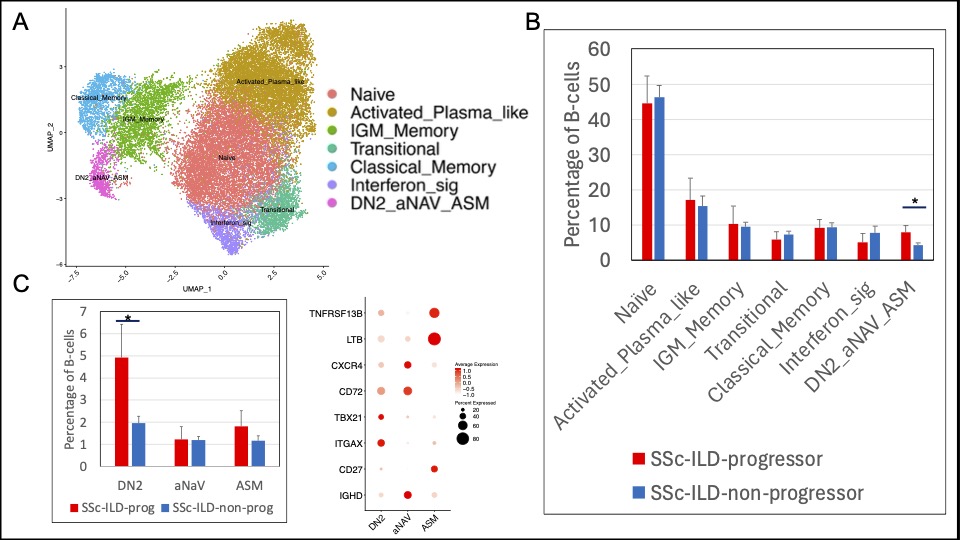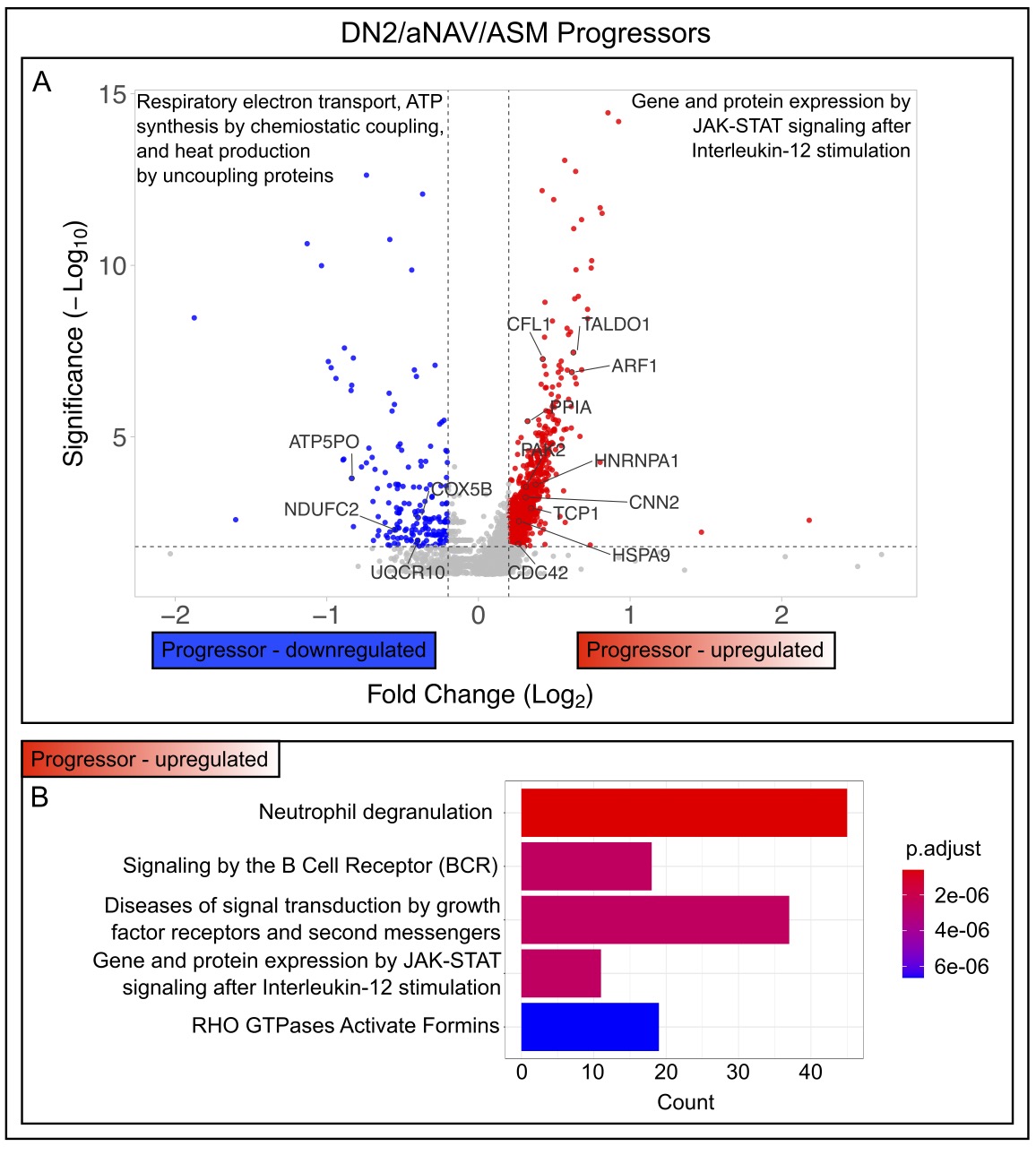Session Information
Date: Sunday, November 17, 2024
Title: Abstracts: Systemic Sclerosis & Related Disorders – Clinical I
Session Type: Abstract Session
Session Time: 1:00PM-2:30PM
Background/Purpose: B-cell subsets display aberrant function in systemic sclerosis (SSc) pathogenesis and infiltrate the lungs of SSc patients with interstitial lung disease (ILD). B-cells relevance is supported by the therapeutic benefits of their depletion, but a better functional characterization and refined association analysis with ILD progression may allow for more targeted treatment strategies. We have sought to characterize specific B-cell populations associated with SSc-ILD and investigate how disease progression affects the transcriptional regimen.
Methods: Single cell RNA-seq was performed on peripheral blood obtained from a cohort of 60 SSc patients enriched for patients with ILD (n=40). Unsupervised clustering identified the B-cell populations which were then selected for further sub-clustering analysis and annotation. Using longitudinal pulmonary function test data, SSc-ILD patients were classified progressive (SSc-ILD-prog) or non-progressive (SSc-ILD-non-prog) lung disease if they lost more than 10% of absolute forced vital capacity within a year before or after blood collection. Differential expression and sub-type frequency analysis was conducted between these two categories. Over representation analysis was performed to identify dysregulated pathways in SSc-ILD-prog patients.
Results: Clustering and annotation of 29,279 B-cells identified 7 B-cell subtypes (Fig.1a). Comparison of the relative proportions of each cell type between SSc-ILD-prog and SSc-ILD-non-prog (Fig.1b) revealed a significant 1.8-fold increase (p-value=3.0×10-2) in SSc-ILD-prog for a mixed population of B-cells (DN2_aNAV_ASM), which by subclustering showed three distinct B-cell subsets: CD11c+ (ITGAX) T-bet (TBX21) expressing double-negative-2 memory B-cells (DN2), CD27–/IgD+ activated naive (aNAV) expressing CD72 and CXCR4, and CD27+/IgD– activated switched memory B-cells (ASM) (Fig. 1c). Only DN2 were significantly increased in SSc-ILD-prog (2.5-fold, p-value=1.0×10-2). aNAV and DN2 clustered as a continuum of states, hence we conducted differential expression analysis of the entire DN2_aNAV_ASM cluster (Fig. 2a) and identified genes upregulated in SSc-ILD-prog with robust enrichment in the“Gene and protein expression by JAK-STAT signaling after Interleukin-12 stimulation” pathway (FDR = 7.0 x 10-11) and “Diseases of signal transduction by growth factor receptors and second messengers” pathway (FDR = 2.9 x 10-4) (Fig. 2b).
Conclusion: Using single cell analysis, we identified a significant expansion of double-negative-2 memory B-cells (DN2) in SSc-ILD patients with active/progressing disease. These cells cluster with CD27–/IgD+ activated naive B-cells and display an upregulation of IL12-STAT signaling genes, an axis known to be critically involved in CD11c+ B-cell generation in SLE. Our findings suggest that DN2 frequency and transcriptomic signature changes in accordance with SSc-ILD progression and may have prognostic value as well as mechanistic involvement in this disease.
To cite this abstract in AMA style:
Oliver T, Taylor K, Cao Y, Sasaki T, Rao D, Bottini N, Boin F, Ainsworth R. Single Cell RNA-seq Identifies Circulating Double-negative-2 B-cell Population Associated with Progressive Scleroderma Interstitial Lung Disease [abstract]. Arthritis Rheumatol. 2024; 76 (suppl 9). https://acrabstracts.org/abstract/single-cell-rna-seq-identifies-circulating-double-negative-2-b-cell-population-associated-with-progressive-scleroderma-interstitial-lung-disease/. Accessed .« Back to ACR Convergence 2024
ACR Meeting Abstracts - https://acrabstracts.org/abstract/single-cell-rna-seq-identifies-circulating-double-negative-2-b-cell-population-associated-with-progressive-scleroderma-interstitial-lung-disease/


